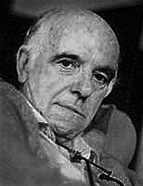

The son of a reserved Bank of Portugal clerk and a Spanish-English lady with a fickle sense of humour, he was an outstanding student at Camões High School, winning the national prize given to the top students. Given his proficiency in foreign languages, and advised to go to the Faculdade de Letras [ School of Arts and Humanities ] because of the shortage of good lecturers in that field (and to avoid Law, where there would be no shortage of lecturers or lawyers), Lindley Cintra enrolled in the Romance Philology programme in 1942. Although he cultivated a great deal of self-education, much of which was fed by the library of the then Centro de Estudos Filológicos [ Centre for Philological Studies ] (now the Centro de Linguística da Universidade de Lisboa [ Centre of Linguistics of the University of Lisbon ] ), Hernâni Cidade and Vitorino Nemésio were key figures in Cintra ’ s training in Portuguese literature, while in linguistics the German guest professor Harri Meier played the most decisive role. Cintra ’ s entire activity in higher education, as a student and lecturer , took place at the Faculdade de Letras [ School of Arts and Humanities ] : here he graduated in 1946 and received his doctorate six years later in Romance Philology; he was an assistant professor between 1950 and 1960, an extraordinary professor between 1960 and 1962 and a full professor from that year onwards.
He created the Department of Linguistics (today the Department of General and Romance Linguistics) as part of a departmental restructuring of the Faculdade de Letras [ School of Arts and Humanities ] in 1975, and reformed the Centro de Estudos Filológicos [ Centre for Philological Studies ] the following year. He directed the Boletim de Filologia and the new series of the Revista Lusitana , and was a member of various scientific organisations, including the Academia Portuguesa da História [Portuguese Academy of History] and the Academia das Ciências de Lisboa [Academy of Sciences of Lisbon] in Portugal and the Real Academia de la Historia [Royal Academy of History] and the Academia de Buenas Letras de Barcelona [Academy of Arts and Humanities of Barcelona] abroad.
This work is financed by national funds through FCT - Foundation for Science and Technology, I.P, in the scope of the projects UIDB/04311/2020 and UIDP/04311/2020.
